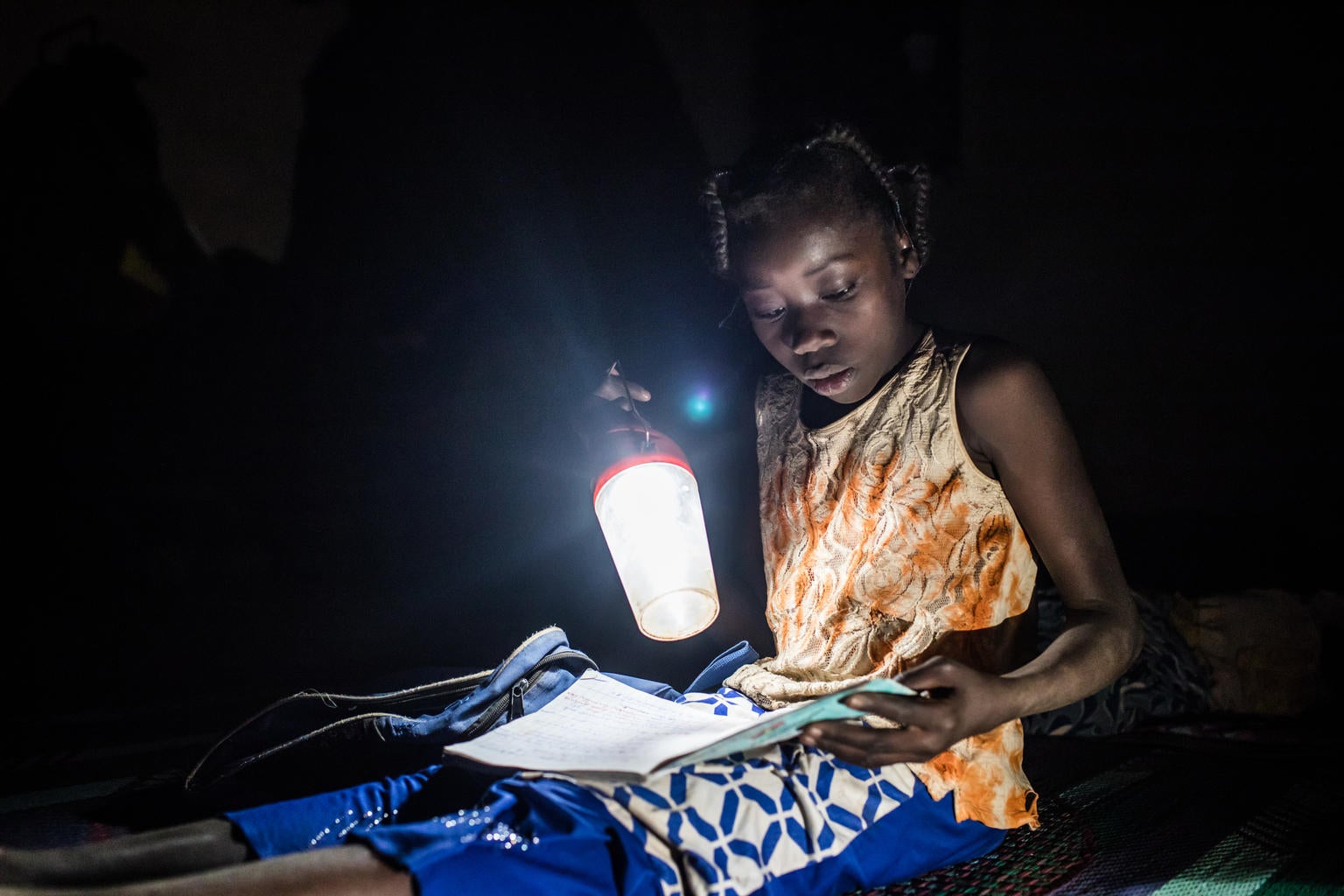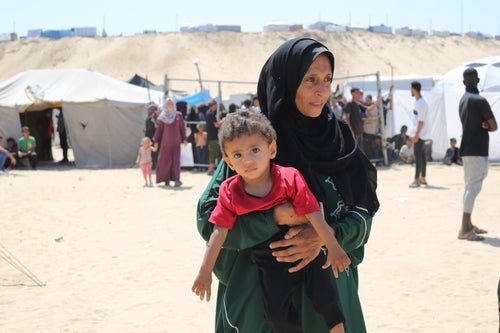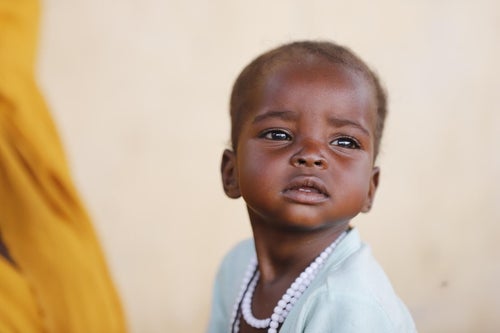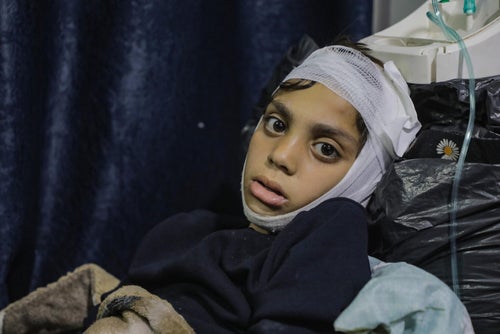Violence escalates in Syria; 'Peanut butter' saves lives in Mali; UNICEF flies in supplies to respond to the outbreak of Coronavirus disease; And, school support amid rising conflict in Burkina Faso.
Violence escalates in Syria
This year marks the ninth year of horrific war in Syria. Since December last year alone, more than 500,000 children have been displaced by escalating violence in the northwest region of the country.
With the majority of Syria’s population living below the poverty line, the freezing winter months are a trial of hardship and survival for children. With the conflict unabating, newly displaced families - already tired from days of walking - now face the harsh cold, a lack of food and clean water and desperate living conditions in makeshift camps.
As temperatures plummet, UNICEF is on the ground, providing hygiene kits, safe drinking water, warm clothes for winter, and screening and treatment of malnutrition, as well as education and psychosocial support.
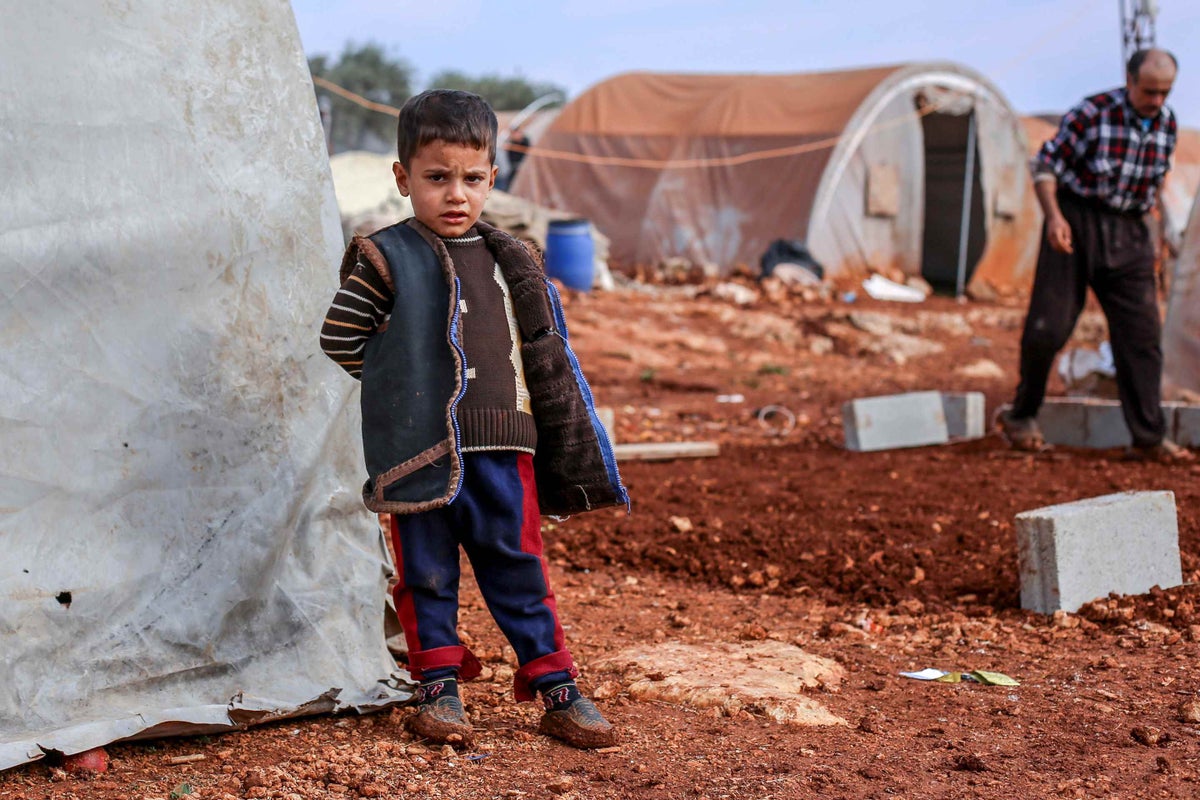
The 'peanut butter' that is saving lives in Mali
Aissata, six months, was suffering from severe acute malnutrition so critical that she stopped moving. In Aissata’s home country of Mali, over 22,000 children have been treated for the condition.
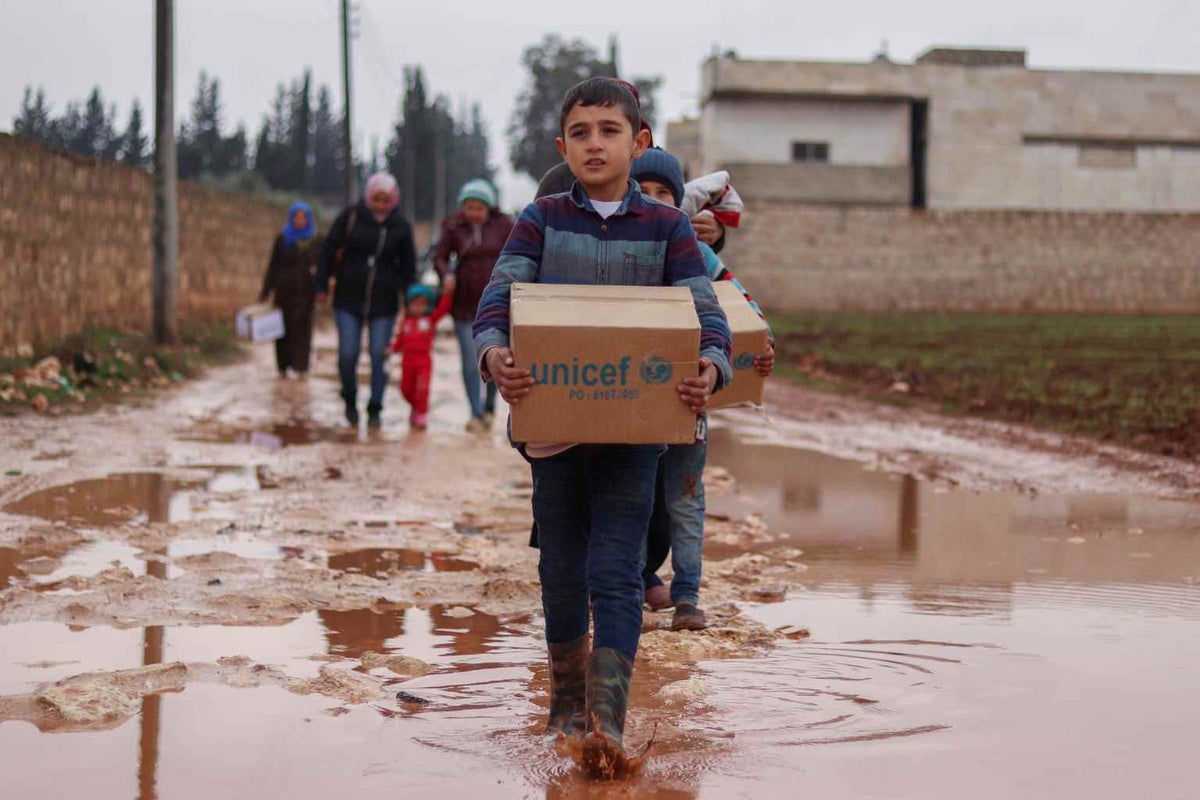
“I was in total despair,” says her father, Boureima.
“I was mentally prepared to lose my child.”
Today, Aissata is on the road to recovery thanks to Plumpy'nut® therapeutic supplements supplied by UNICEF and partners.
“After the treatment started, Aissata started looking more alive,” says her mother, Amissatou. “She was starting to move around again, she even wanted to play again.”
Our Plumpy'nut® ‘peanut butter’ saves lives in challenging situations around the world. Packed with essential vitamins and nutrients, this therapeutic food brings malnourished children back to health.
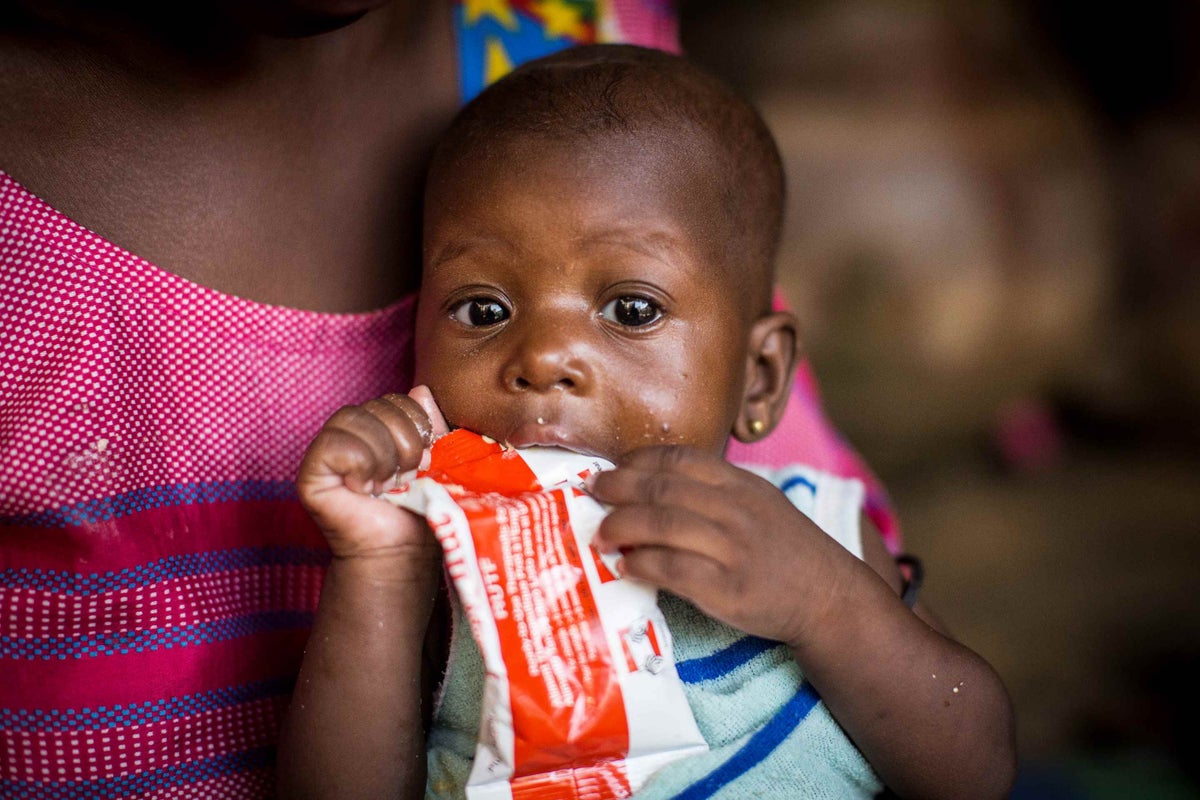
UNICEF responds to coronavirus disease
Recent outbreaks of the 2019 coronavirus disease have impacted many parts of the globe. UNICEF’s current response focuses on supporting the Government of China and the broader East Asia and Pacific region countries where most of the cases have so far been reported.
Since late January, UNICEF has flown in 13 tons of supplies, including protective suits, masks, goggles and gloves for use by health workers. Additional shipments are in the pipeline and UNICEF is pre-positioning supplies in key locations.
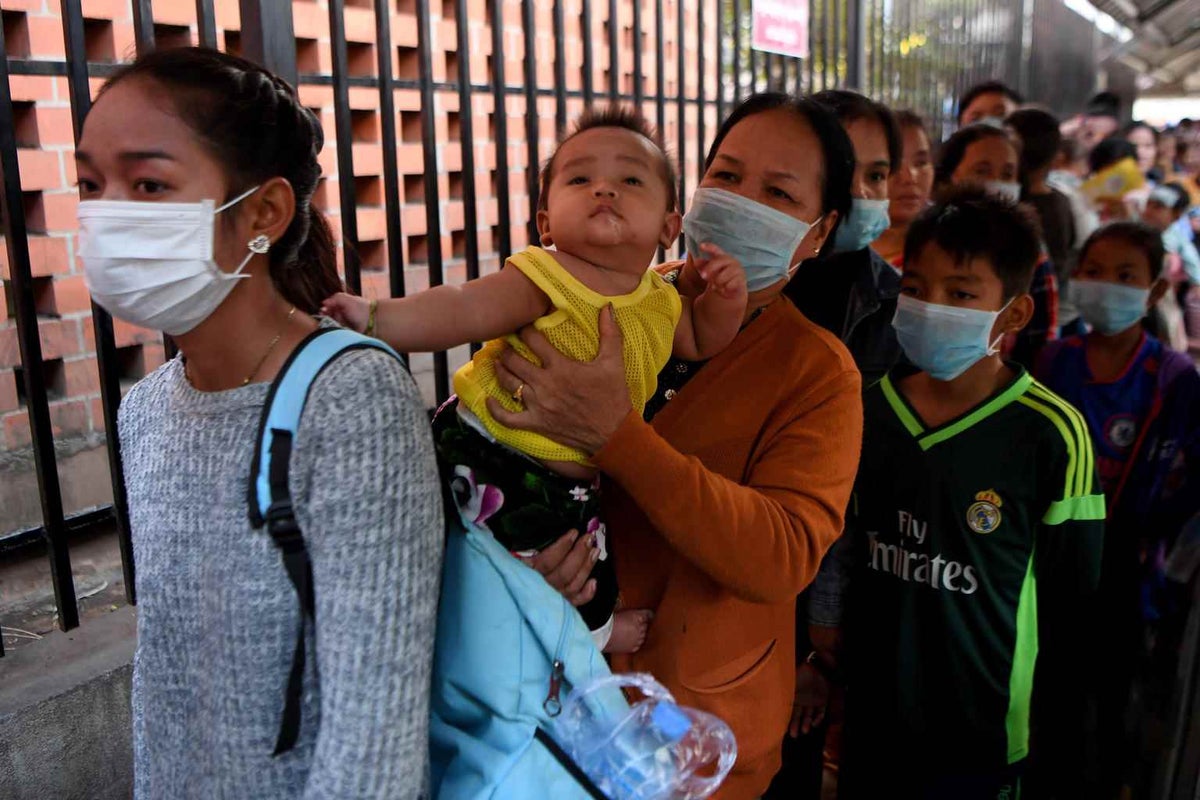
Given the unpredictable nature of the virus and the continued spread, UNICEF is also liaising with governments, World Health Organization counterparts and other partners in developing contingency plans in other regions, especially in countries with weaker health systems and limited capacity to deal with major disease outbreaks.

To reduce the risk of infection and stop the spread of coronavirus, UNICEF and WHO recommend some simple precautions such as frequent hand-washing, coughing and sneezing into the elbow and alerting medical professionals if symptoms are present.
Survival and education in Burkina Faso
A drastic rise of conflict in Burkina Faso is having devastating effects on children's survival, development and education.
Children like Nabiya are struggling to receive basic needs, including healthcare, clean water and education. Nabiuya and her family were forced to flee to the neighbouring village, Kaya, after their community came under attack.
Nabyla is currently attending a UNICEF-supported school in Kaya. She hopes to become a nurse and make enough money to support her family.
Since November last year, more than a million people - half of which are children - have been displaced. UNICEF is working with partners to provide essential services in Burkina Faso, like education, shelter, child protection, health and nutrition.
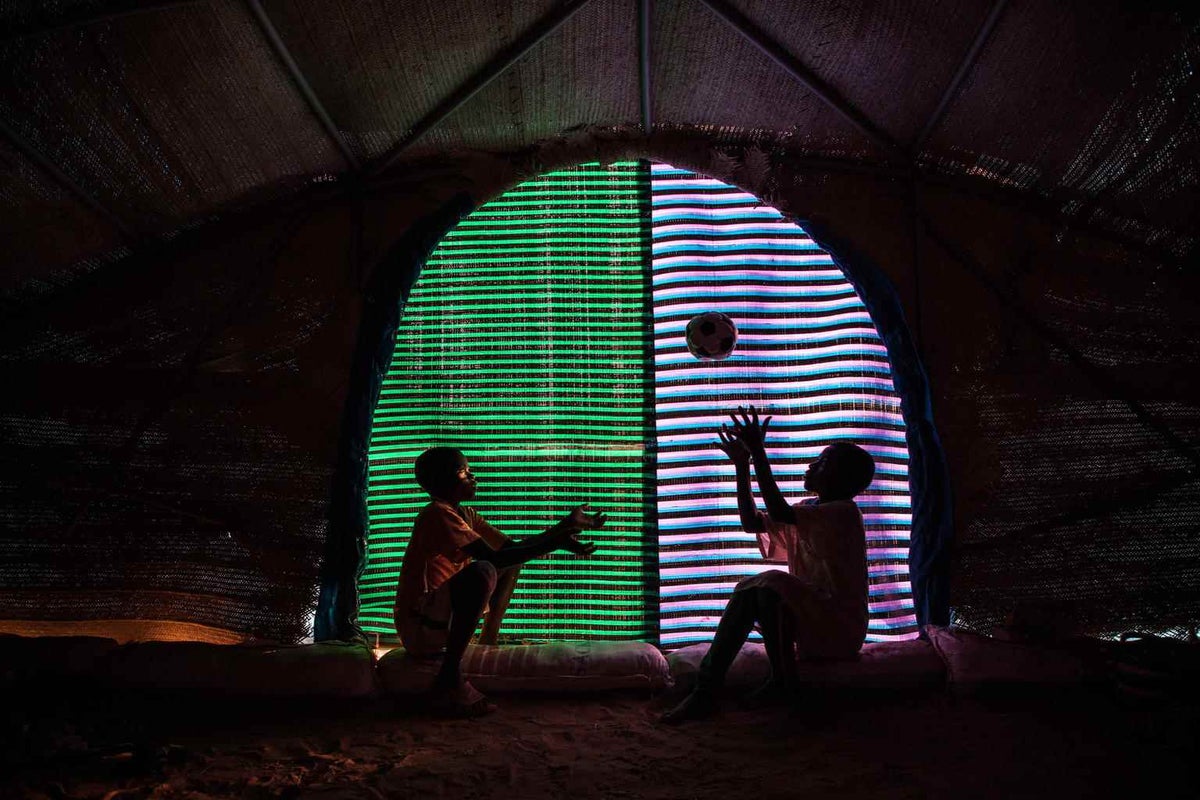
Inspired? Even from here in Australia, you can do your bit!
UNICEF humanitarians do incredible work out in the field but you too can help all around the world by signing up to make a monthly gift & joining our special group of Global Parents.
UNICEF can reach children no one else can. We can provide safe places for children to learn and play, deliver clean water and life-changing supplies, bring a child back from severe malnutrition and make sure every child smiles. But we can’t do it alone. Help UNICEF deliver these things and more to every child.
Related articles
Stay up-to-date on UNICEF's work in Australia and around the world



